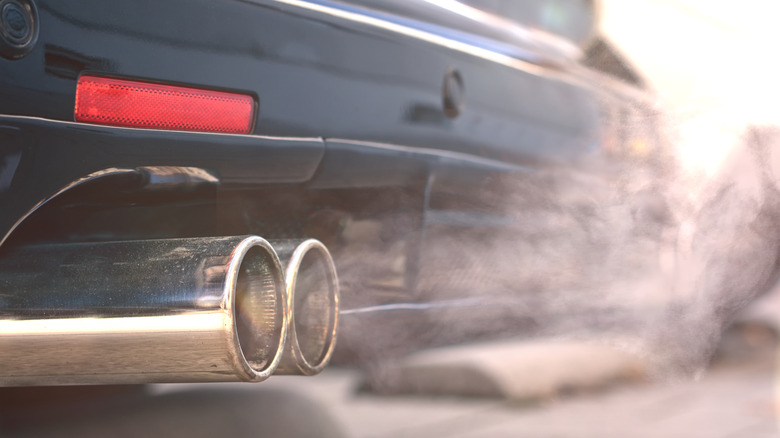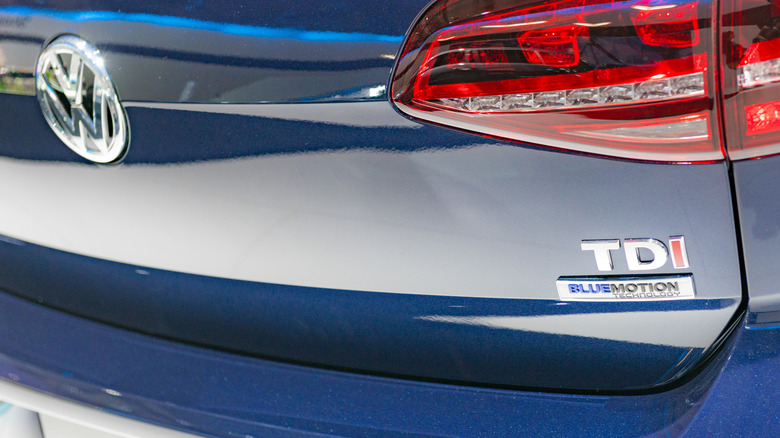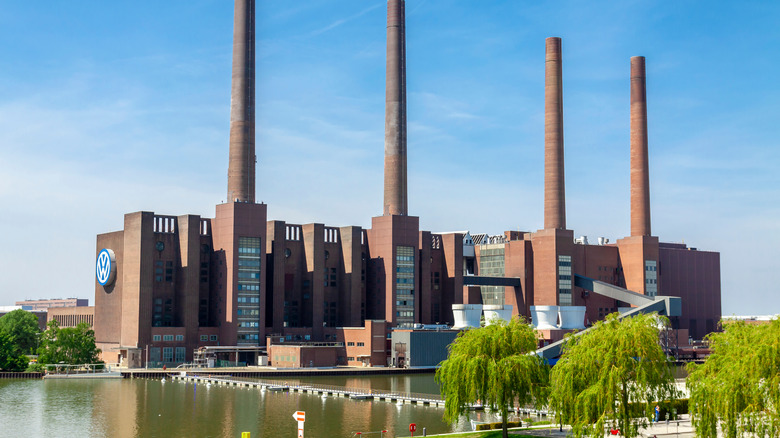The Story Behind Volkswagen’s Infamous Dieselgate Scandal
Before battery electric and hybrid vehicles became the de facto path toward efficiency and saving the environment, Volkswagen made a serious splash in the marketplace with products featuring its highly-touted “clean diesel” engines.
Since diesel engines are typically more fuel efficient and produce less carbon dioxide (CO2) than their gasoline counterparts, this strategy already had some built-in advantages. The one big downside to diesels is that a much higher quantity of Nitrogen Oxide (NOx) is produced versus a gasoline engine, and conventional catalytic converters are not as effective at removing this pollutant from diesel exhaust fumes.
To overcome this hurdle, VW initially licensed a urea-based (commonly known as Diesel Exhaust Fluid) NOx reduction system from Mercedes-Benz, called BlueTec. While effective, BlueTec was expensive, complicated to maintain, and required a large amount of space, which was a challenge since many Volkswagens are compact in size, like its Golf. As such, Volkswagen canceled the BlueTec licensing deal to pursue its own in-house technology to reduce pollution.
Advertisements promised more than the cars could deliver
The solution that Volkswagen engineers devised was called a “lean NOx trap” which had the serious flaw of requiring a fuel-rich environment to operate effectively, which killed the vehicle’s fuel economy. So while the brand embarked on a massive advertising campaign promising both excellent fuel economy and reduced harmful emissions, in actuality, it was more of an “either-or” situation.
The nefarious workaround — and the crux of the Dieselgate scandal — was for engineers to reprogram the vehicle’s Electronic Control Unit (ECU). Their adjustments allowed the ECU to sense when an emissions drive cycle test was underway and change the mode in which the engine operates. In test mode, the vehicles were fully compliant with federal emissions levels at the expense of poor fuel economy, but during normal driving, they emitted nitrogen oxide at a rate up to 40 times the legal limit. The ruse worked, at least for a while. Sales of diesel-powered models exploded to 23.9% of all new Volkswagens sold in 2012, compared to just 1.6% five years earlier.
Up to 30 executives may have known about the cheating
In 2013, researchers from West Virginia University (WVU) uncovered the scheme when they were conducting on-road emissions tests that mimicked real-world driving conditions, which meant that the onboard computer systems in the two sample Volkswagens failed to enter test mode. As such, the NOx emissions were much higher than the testing team expected. In 2014, the International Council on Clean Transportation published WVU’s results and simultaneously reported the findings to the Environmental Protection Agency and California Air Resources Board. The jig was up.
In the aftermath, we learned that more than 500,000 vehicles in the U.S. and over 10.5 million vehicles sold worldwide between 2009 and 2016 were set up to cheat on emissions tests. Other brands under the Volkswagen umbrella were similarly affected, including Porsche and Audi vehicles with diesel engines.
To make good on its wrongdoings, Volkswagen established a $15 billion fund in the U.S. to either buy back or repair the cheating vehicles, plus additional cash compensation to the owners or leaseholders to the tune of $2,600 to $10,000 each. Also included in the $15 billion restitution was $2.7 billion paid into an environmental trust and an additional $2 billion towards developing zero-emissions vehicle infrastructure and awareness.
An article in the German publication Der Speigel reported that at least 30 people in management at Volkswagen knew about the emissions testing scandal, a claim that Volkswagen later denied. Still, at least several executives did serve prison time over the deception. In 2016, the brand announced they would no longer sell diesel-powered vehicles in the United States, choosing to focus on all-electric vehicles instead.


